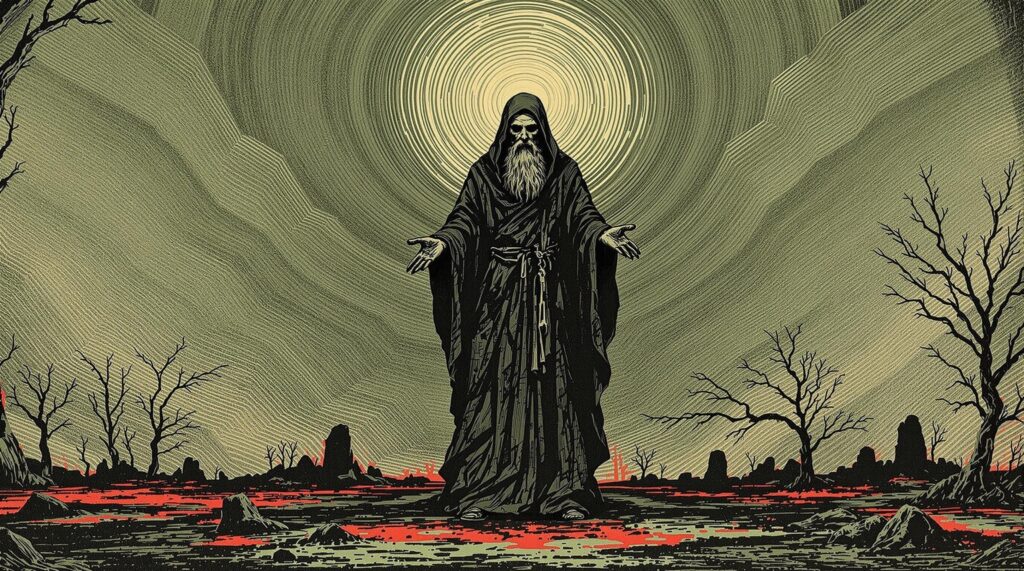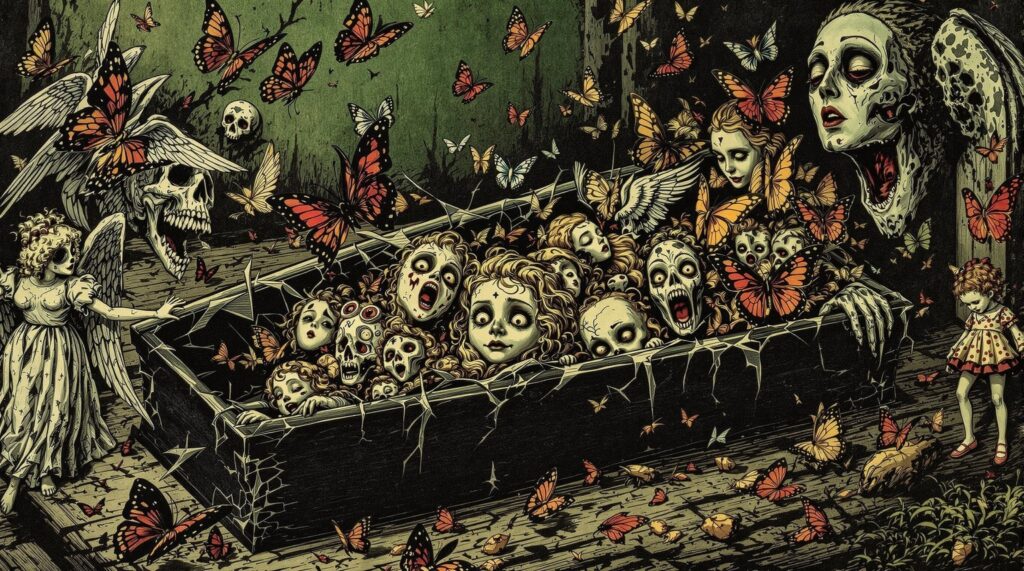In this chapter, Zarathustra, encounters a soothsayer who delivers a foreboding prophecy about the future of humanity.
The soothsayer speaks of a great sorrow descending upon people, where even the best among them grow weary of their deeds. A doctrine spreads proclaiming, “Everything is empty, everything is the same, everything has been!” This refrain echoes from every hill, signifying a pervasive sense of nihilism and futility. The fruits of labor have turned rotten. The wine has become poison, fields and hearts have withered, and a dryness has overtaken all. There is a longing for an end, a desire for an abyss to swallow everything, but even the depths refuse to consume.

-And I saw a great sadness come over mankind. The best turned weary of their works.
A doctrine appeared, a faith ran beside it: ‘All is empty, all is alike, all has been!’
And from all hills there echoed back: ‘All is empty, all is alike, all has been!’
Zarathustra hears this prophecy, which profoundly affects him. He becomes sorrowful and weary, embodying the very despair the soothsayer described. Concerned about preserving his own light amid this encroaching gloom, he fears that that the light of his teachings may be extinguished by the pervasive sadness. For three days, he wanders without food or rest, losing his speech and becoming deeply troubled. Eventually, he falls into a deep sleep, during which he experiences a vivid dream.
In his dream, Zarathustra becomes a night and grave watchman atop a solitary mountain fortress of death. He guards tombs filled with signs of conquered life, surrounded by the stale air of dusty eternities. The oppressive atmosphere weighs on his soul, and he is accompanied only by loneliness and a suffocating silence. He holds the rustiest of keys to open the creaking gates, which emit a harsh, unpleasant sound when moved.
Suddenly, three thunderous knocks resound at the gate. A raging wind bursts it open, hurling a black coffin towards him. The coffin shatters, releasing a cacophony of laughter from a multitude of faces—children, angels, owls, fools, and giant butterflies—all mocking and jeering. Overwhelmed by terror, Zarathustra is struck down and cries out as never before, which ultimately awakens him from the nightmare.

Then a roaring wind tore its wings apart: whistling, shrieking and piercing, it threw a black coffin at me: And in the roaring and whistling and shrieking, the coffin burst and spewed forth a thousandfold laughter. And from a thousand caricatures of children, angels, owls, fools, and child-sized butterflies, it laughed and mocked and roared at me.
Upon awakening, Zarathustra recounts his dream to his disciples but admits that its meaning remains elusive to him. One disciple, whom Zarathustra loves most, offers an interpretation. He suggests that Zarathustra himself is the powerful wind that forces open the gates of death’s fortress. The black coffin represents Zarathustra, filled with vibrant mockeries and symbols of life’s complexities. His laughter and presence will startle and overthrow the guardians of death and those who cling to bleakness with their dismal keys.
The disciple asserts that Zarathustra’s influence will prove potent, causing a revival even amidst the onset of a long twilight of despair. He will continue to champion life, unveiling new stars and nocturnal wonders. The laughter he brings will emanate from coffins, symbolizing a resurgence of joy from places of death. The disciple concludes that Zarathustra had dreamed of his own adversaries, and just as he awakened from them, so too will they awaken and come to him.
Zarathustra listens but remains silent, still under the weight of his experience. His disciples urge him to abandon his sorrow and rejoin them. As they help him to his feet, Zarathustra’s demeanor changes. He recognizes what has transpired and decides to atone for his troubling dreams by organizing a hearty meal. He invites the soothsayer to dine with them, hinting that he intends to show him a sea vast enough to drown his despair.
But then he gazed long into the face of the disciple who had played
dream-interpreter, and shook his head, indicating that his interpretation was not correct.
